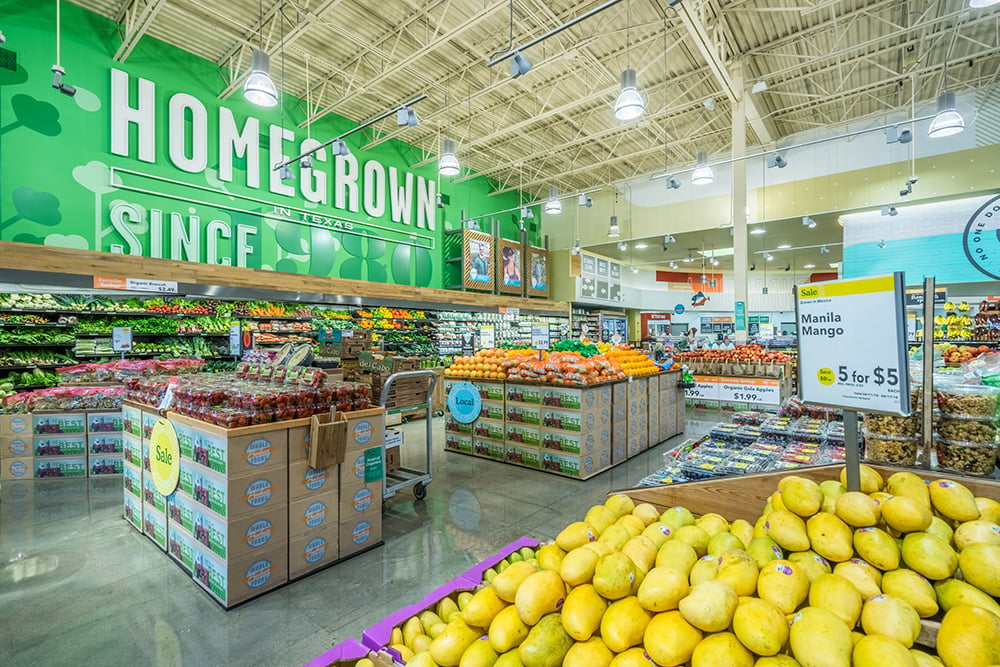We all have our own, personal preferences in life — and grocery shopping is no different. From Publix's legendary “Pub Subs” to specialty snacks at Trader Joe’s and the hot bar at Whole Foods, each American grocery store has built up its individual repertoire of items, prices, layouts, and levels of efficiency that appeals to its own crowd of devoted customers — or, cult followers — for one reason or another. The idea of who falls into which grocery store category, whether its Wegmans or ShopRite or H-E-B, sparks a very interesting question: what do our grocery store preferences say about us?
 Whole Foods Market at Regency's Woodway Collection in Houston
Whole Foods Market at Regency's Woodway Collection in Houston
“The matrix of decision making over where to shop generally includes criteria like who is cheapest, who is closest, and who has what I’m looking for, not whose brand is integral to my identity. Of all things, why do grocery stores hold these places in our hearts?” said Jaya Saxena, Contributor at Eater. “Certainly, there are differences in quality and experience between stores; a Whole Foods and a ShopRite just feel different.”
Our trips to the grocery store are a consistent part of our regular monthly, weekly, and sometimes, daily routines. Generally, we don’t vary how and where we choose to regularly shop, and what we shop for. Ultimately, these choices are an extension of our personalities. In the age of digital and social media, these choices are also a reflection of our personal brands.
“And perhaps we can’t quite admit to ourselves that what makes a Publix sub and a Wegmans sub different isn’t quality, or even ingredients: Looking at the menus, you can order basically anything you want at both deli counters (and at any deli, anywhere),” said Jaya. “Instead, what’s different is our expectations. We tell ourselves there’s a marked difference between these stores because if there isn’t, then our choices have been determined by the outside conditions of our lives rather than some innate fact.”
Learn more about grocery shopping preferences here.